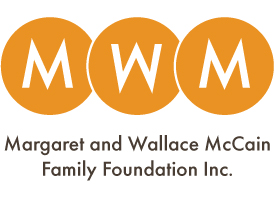
 Download What is Early Childhood Education in PDF format
Download What is Early Childhood Education in PDF format
What is Early Childhood Education?
“Early childhood education (ECE) creates a space where young children can play and learn together that is planned and guided by qualified educators. Children attend on a regular basis. ECE programs include quality child care centres, nursery schools, preschools, pre-kindergarten and kindergarten.”
The first 2,000 days of a child’s development sets the foundation for learning and well-being that lasts a lifetime. Early childhood education offers rich, play-based learning environments that encourage crucial language, social, physical, emotional, and thinking skills. ECE complements family life and sets children up to be learners for life.

Is ECE the same thing as day care?
ECE is much more than taking care of kids while their parents are at work. On the surface, daycare and early childhood education may seem like the same thing. Both support parents in rejoining the workforce and both can be targeted towards children 5 years old and younger. A child will get to interact with other kids their age in both cases and each provides safe, supervised care for children while their parents or caregivers are at work.
So, why is there such a big push towards early childhood education when daycare seems to suffice?
Daycare refers primarily to the custodial care of children. Custodial care provides a safe environment for children that also keeps them nourished, however it does not boost critical language, thinking or interpersonal skills the way that ECE can.

Benefits of an early childhood education
Early childhood education puts children first. ECE supports parental workforce participation, but its primary purpose is promoting all children's learning and well-being. A child care system that does not lead with ECE makes taking care of kids so parents can work the priority.
ECE gives preschool children learning opportunities they need for reading, mathematics, and science in later school years. Early learning is a powerful equalizer that narrows achievement gaps that emerge before children even start school. Children learn to get along with each other. And the best part? ECE benefits all children, regardless of their parents’ work status or income level.
ECE also stimulates our economy – now and in the future. ECE reduces special education costs in the school system and promotes the productivity of the future workforce. ECE provides care that enables parents, particularly mothers, to enter or re-enter the workforce. When parents have good, well-paying jobs, they are more likely to contribute to the economy and pay taxes while also reducing their
dependence on social benefit programs funded by the government.

Canada is stepping up to invest in a universal, publicly funded early learning and child care system
The federal government’s spring Budget 2021 announced a five-year commitment of $30 billion to build a national early learning and child care (ELCC) system followed by an annual commitment of $9.2 billion in partnership with provincial and territorial governments.
This is a welcome step forward, but providing affordable child care to working parents without providing quality early learning is not enough. Early childhood education must be central to an ELCC system in Canada and must be offered to all children whether their parents are working or not.
ELCC is early childhood education that can be organized to support parents’ work – just like elementary schools and before- and after-school programs do for older kids. It is the first tier of education – as important as primary, secondary and post-secondary education.
True equity is ELCC that leads with ECE and that is determined based on a child’s age, not their parents’ work status, eligibility for subsidy or ability to pay.
Learn more about ECE and how we can build a high-quality, universal, publicly funded and supported system at:
www.earlyyearsstudy.ca
